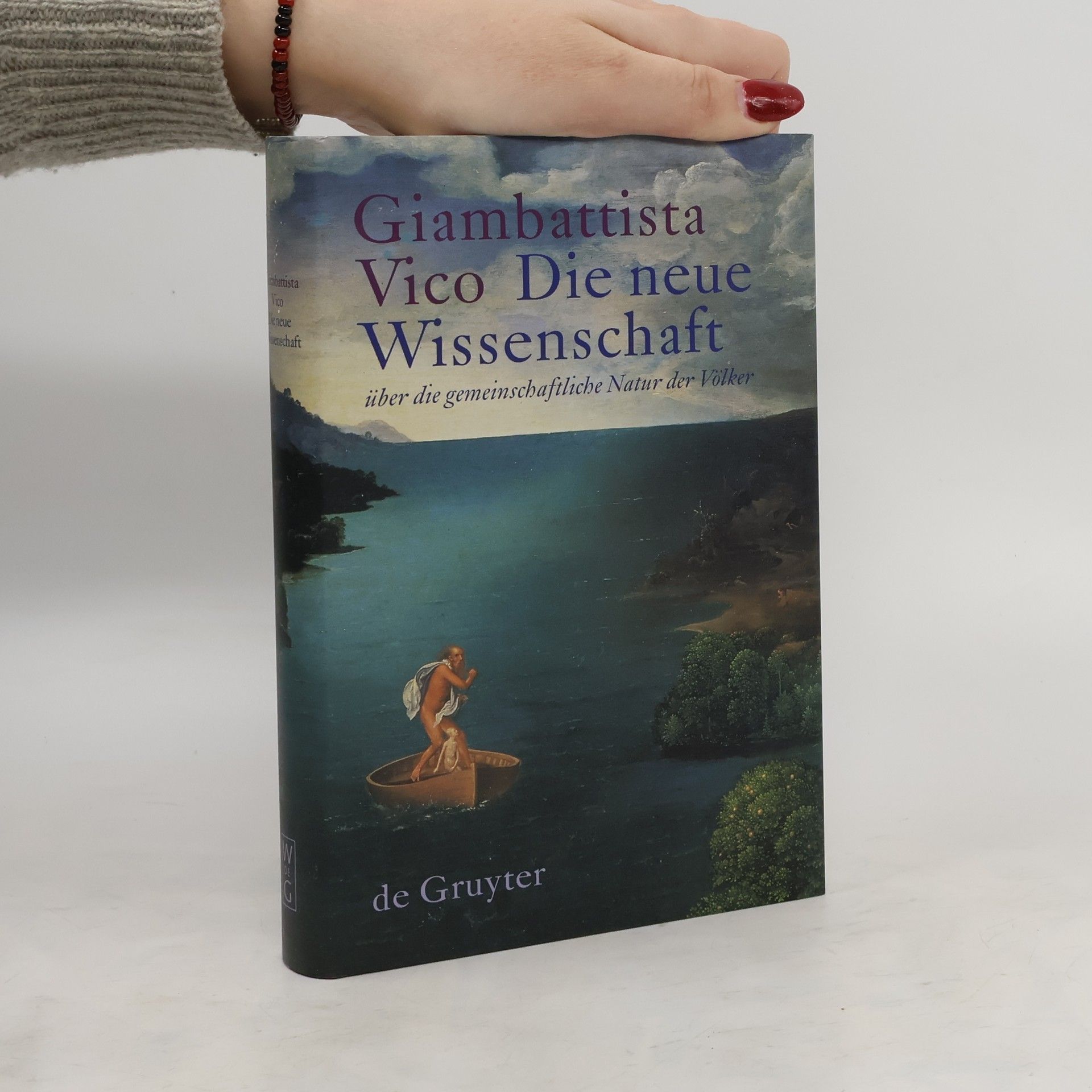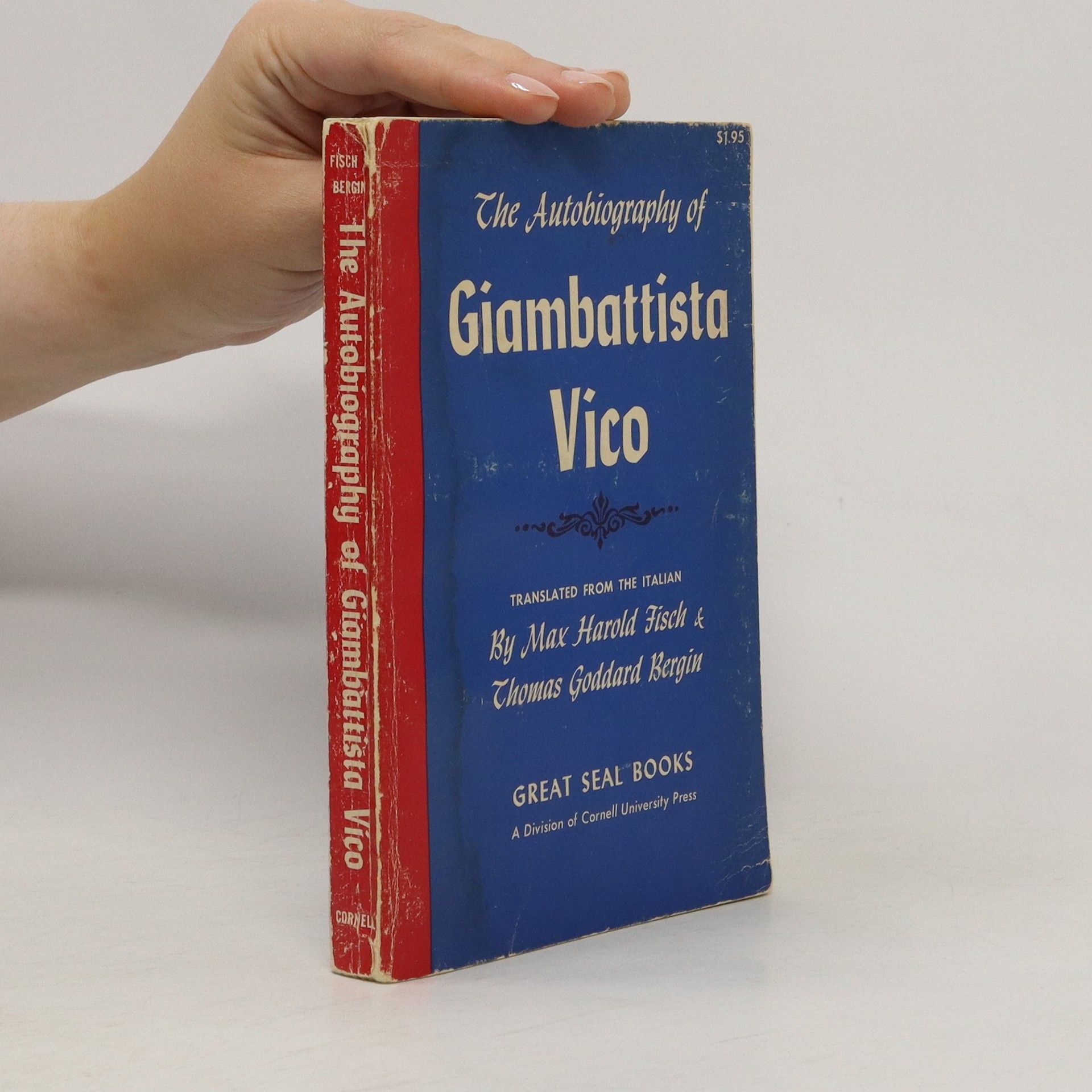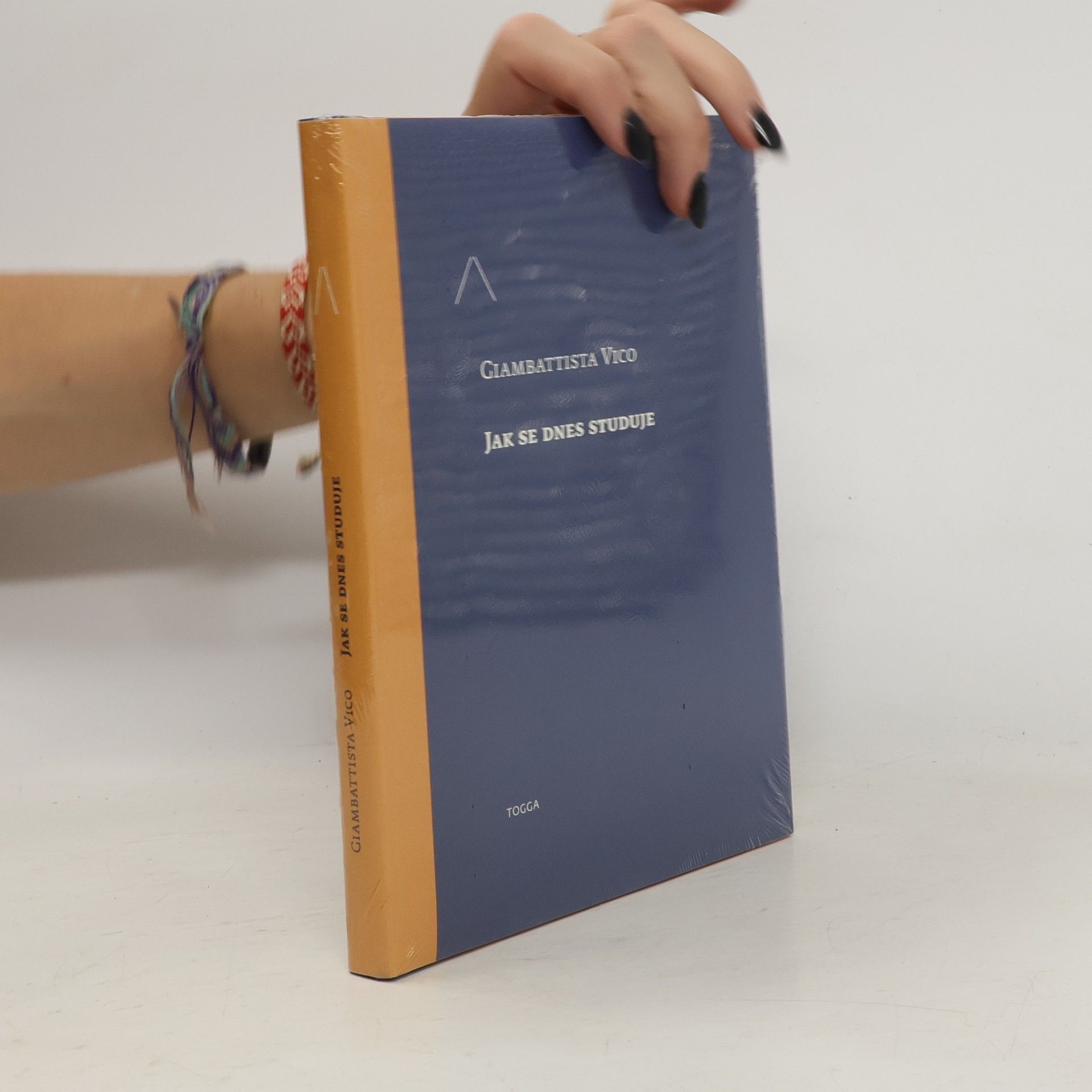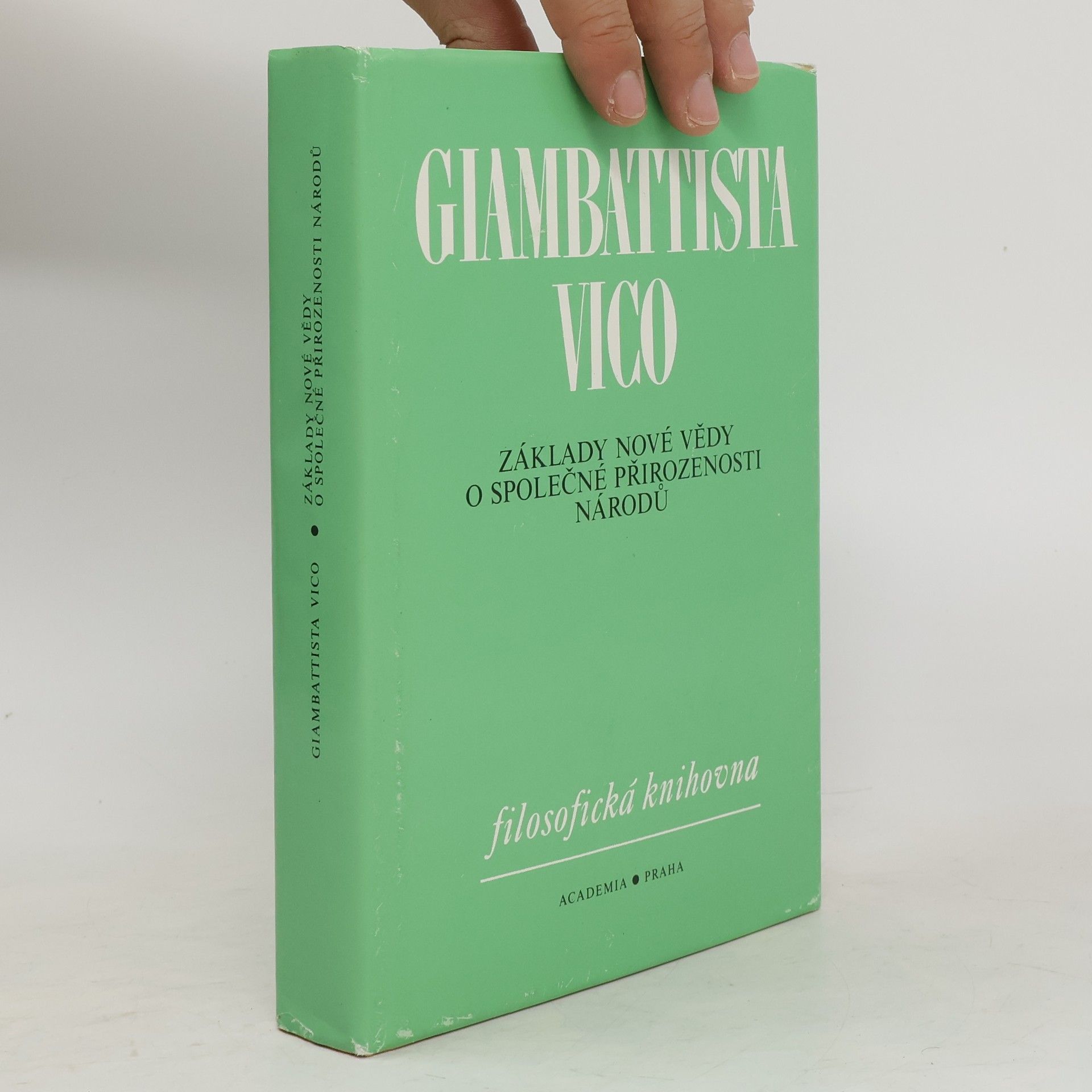Základy nové vědy o společné přirozenosti národů
- 466 stránek
- 17 hodin čtení
Giovanni Battista Vico byl italský politický filozof, rétor, historik a právník. Ve svém hlavním díle, nazvaném „Principy/Původnost nového vědění o společné přirozenosti národů“, Vico kritizoval moderní racionalismus a obhajoval klasickou starověk a představil „vědu o zdůvodňování“. Jeho práce je často považována za počátek moderní filozofie dějin, přičemž Vico zdůrazňoval, že „pravda je sama o sobě tím, co je vytvořeno“. Jeho myšlenky, obzvláště z jeho „Nové vědy“, jsou dnes předmětem zájmu pro svůj historický přístup.







Jak se dnes studuje je asi nejpřístupnější text neapolského filosofa Giambattisty Vica (1668–1744). Vico zde přehledně srovnává moderní přístup ke studiu s antickým vzděláváním na příkladech různých disciplín od přírodovědy přes lékařství až k umění nebo právní vědě. Kritizuje fragmentarizaci vzdělání i jeho narůstající odtrženost od životní praxe. Překlad je uveden delší předmluvou, která čtenáři poskytne potřebný rámec Vicova myšlení od kulturního kontextu přes základní přehled života, díla až k výkladu ústředního konceptu jeho filosofie.
A fresh translation of The New Science, with detailed footnotes that will help both the scholar and the new reader navigate Vico's masterpiece
The Autobiography of Giambattista Vico is significant both as a source of insight into the influences on the eighteenth-century philosopher's intellectual development and as one of the earliest and most sophisticated examples of philosophical autobiography. Referring to himself in the third person, Vico records the course of his life and the influence that various thinkers had on the development of concepts central to his mature work. Beyond its relevance to the development of the New Science, the Autobiography is also of interest for the light it sheds on Italian culture in the seventeenth and eighteenth centuries.Still regarded by many as the best English-language translation of this classic work, the Cornell edition was widely lauded when first published in 1944. Wrote the Saturday Review of Literature "Here was something new in the art of self-revelation. Vico wrote of his childhood, the psychological influences to which he was subjected, the social conditions under which he grew up and received an education and evolved his own way of thinking. It was so outstanding a piece of work that it was held up as a model, which it still is."
Giambattista Vico (1668-1744) ist einer der originellsten und eigentümlichsten Philosophen vor Kant und Hegel. Zwar hatte bereits Giorgio Vasari in der Geschichte der Kunst einen Zyklus von Aufstieg, Blüte und Niedergang diagnostiziert, aber erst Vico baute dies zu einem philosophischen System aus. Ohne direkten Kontakt zum philosophischen Leben seiner Zeit, schrieb er in seiner neapolitaner Isolation an seinem großen Entwurf der Zyklen von Aufstieg, Blüte, Verfall und ständiger Wiederkehr, der ihm in allen Bereichen der Kultur auszumachen schien. Bezugspunkte sind ihm die antike Mythologie und die griechisch-römische Geschichte. Insofern gilt er heute als Begründer der Geschichtsphilosophie und Vorläufer einer Tradition, die bis zu Hegel und Oswald Spenglers „Untergang des Abendlandes“ führt. Darüber hinaus bietet sein Buch aber noch viel mehr: An der Rechts- und Religionsgeschichte macht er überhaupt zum ersten Mal fest, wie diese jeweils geschichtlich bedingt sind. Was hier so komplex klingt, ist doch in der großen Auswahlübersetzung von Erich Auerbach, die selbst ein literarisches Eigenleben für sich beanspruchen darf, ein reines, intellektuelles Lesevergnügen.
Vicos »Scienza nuova« von 1725, nun erstmals auf Deutsch, ist ein bedeutendes Werk, das die politische Welt philosophisch erfassen möchte. Im Gegensatz zu Descartes, der Wissen aus reinem Denken ableitet, betont Vico die Bedeutung menschlicher Schöpfungen und kultureller Zeichen. Er verbindet Geschichts-, Sprach- und Wissenschaftsphilosophie, was die Grundlagen der modernen Kulturwissenschaft legt. In zwei Kapiteln untersucht er die Entwicklung politisch-juristischer und sprachlich-semiotischer Strukturen der frühen Völker und betrachtet diese als Teil einer universalhistorischen Bewegung der Menschheit.